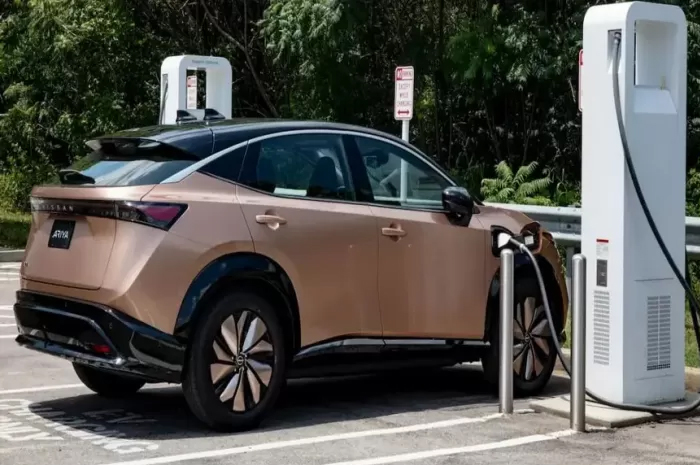Electric cars have long faced a challenge in reaching widespread adoption due to their relatively higher costs compared to traditional vehicles. The primary culprit behind these elevated prices has been identified as the battery, a crucial component in electric vehicles.
The LFP Advantage
In a bold move to overcome this obstacle, Nissan is turning to LFP (Lithium Iron Phosphate) batteries. These batteries, crafted from iron materials, boast significantly reduced production costs and enhanced durability compared to their nickel and cobalt counterparts.
Driving Down Costs
As reported by Electrek on Thursday (1/2/2024), Nissan is gearing up to integrate LFP batteries into their electric cars, aiming to substantially slash the overall price tag. The claim is that LFP battery production costs are 20-30 percent cheaper than conventional lithium-ion batteries using NCM (nickel-cobalt-manganese).
Emerging Markets Embrace the Change
Nikkei’s recent report reveals Nissan’s strategic plan to introduce electric vehicles equipped with more affordable LFP batteries in emerging markets as early as 2026.
Balancing Act: The Trade-Offs of LFP
While the production costs of LFP batteries provide a significant advantage, it’s essential to acknowledge the trade-offs. LFP batteries, despite being 30 percent cheaper in production than nickel, cobalt, and manganese-based lithium batteries, come with a downside—lower energy density. This results in a shorter driving range for electric cars utilizing LFP batteries.
However, this limitation is well-suited for electric vehicles designed for urban landscapes, where shorter distances are the norm. Nissan is actively addressing this challenge by investing in cutting-edge battery technology at its research and development facilities in Japan.
Charting the Path Forward
Nissan’s ambition goes beyond just manufacturing LFP batteries; they aim to produce these batteries in-house at the Yokohama factory. This move distinguishes Nissan from its competitors, as it seeks external partnerships to expedite the development of this battery technology and potentially import it.
Potential Partnership with BYD
Should this initiative materialize, Nissan may find itself in direct collaboration with BYD, a major player in the LFP battery market known for its Blade Batteries, utilized across its electric car lineup. BYD currently commands a 41.1 percent market share in the LF battery sector, surpassing rivals like CATL.
A Shift in the Global Electric Car Landscape
The adoption of LFP batteries has proven pivotal for BYD, enabling them to surpass Tesla as the world’s best-selling electric car manufacturer, according to data from the China Automotive Battery Industry Innovation Alliance.
Nissan’s Ascent in the Electric Vehicle Arena
While Nissan currently trails behind electric vehicle giants like Tesla and BYD, the automaker is determined to reclaim its competitive edge. Nissan’s CEO, Makota Uchidam, emphasizes the necessity for the company to evolve and adapt. “We cannot continue the old business ways of the past into the future,” Uchidam asserts.
Future Perspectives
Despite the initial plan to launch 19 new electric vehicles by 2030, Nissan’s strategy might undergo revisions with the introduction of this groundbreaking approach to battery technology. As the automotive industry witnesses a paradigm shift towards affordable electric mobility, Nissan aims to position itself as a frontrunner in this transformative journey.
